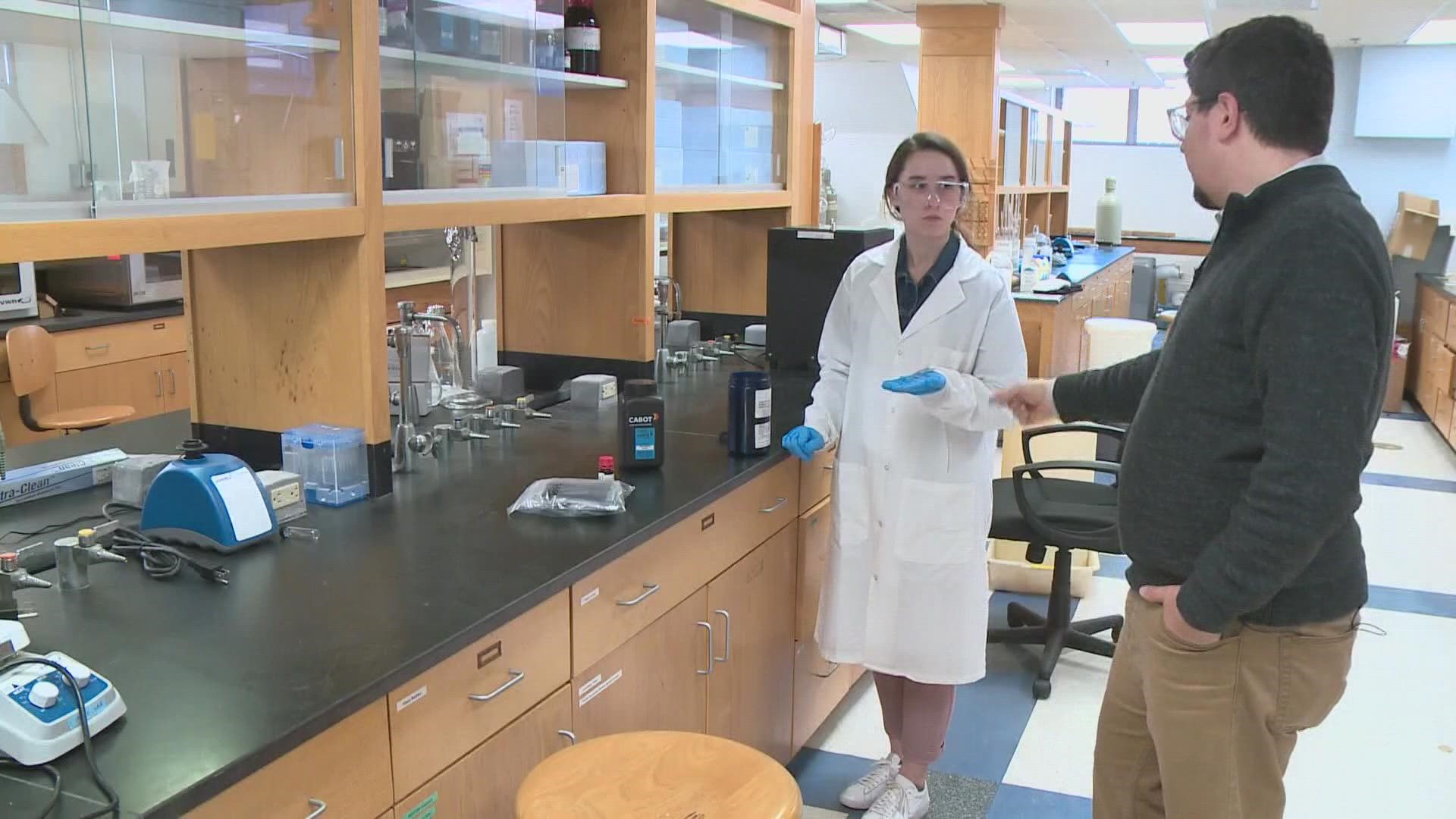ORONO, Maine — A new lab at the University of Maine in Orono will soon help guide farmers grappling with fields and wells contaminated with toxic chemicals known as PFAS or "forever chemicals."
The PFAS research center, which will be paid for with $8 million in federal funding, will have the capacity to test the water, soil, plant, and animal tissue. Currently, state agencies need to rely on labs outside of Maine, where backlogs have delayed results for weeks or even months.
The new facility would provide an important tool in battling PFAS compounds' contamination. Hannah Carter is the dean of the University of Maine Cooperative extension which will run the facility.
"There are so many testing needs across the state when it comes to PFAS," Carter explained.
The lab may be located in existing lab space on campus and at the Cooperative Extension Lab, which houses the tick tab and other research areas. It will not take samples directly from private landowners but is expected to ease the bottleneck at commercial labs. Carter said the lab will have three PFAS testing units.
"We have one dedicated to water, one dedicated to the soil, and one dedicated to tissue, whether that's plant tissue or animal tissue," Carter said.
The toxic compounds are in everyday house products and take decades to break down. They have also been linked to serious health problems. The chemicals are found in wastewater sludge, which was spread as fertilizer on Maine farms for decades. Regulators are in the process of testing hundreds of farms over the next several years.
But with minimal testing capacity, state agencies send samples out of state, with results taking weeks, even months.
"If we have an in-house ability for them to come with their samples, get immediate results, and not have to mail them out," Carter explained.
The lab will tap UMaine researchers who've been working on PFAS issues for years.
Onur Apul, an environmental engineering professor at the flagship campus, is utilizing a $250,000 grant from the National Science Foundation to see whether a souped-up version of granular-activated carbons -- like the ones found in home water filters -- can effectively break down PFAS.
Of the federal funding allocation, $3 million will go to studying crops that may be able to grow on contaminated farmland in Maine. Corn has already been shown to suck the chemicals out of the soil, into the stalk, but not the ear.
"We can figure this out, we can keep farmland, farmland in Maine, and it's not a life sentence," Carter added.
David Trahan, executive director of Sportsman's Alliance of Maine, said he has pushed for an in-state PFAS lab since November 2021, when a "do not eat" advisory for deer harvested in Fairfield and surrounding communities was issued after several animals tested positive for elevated levels of PFAS.
"People harvested deer. It had PFAS in the meat, and they fed it to their families. The reason we got so engaged is that we never wanted that to happen again," Trahan said.
The hope is to have part of the lab up and running to do test samples during the spring planting season, which typically begins in April. The lab could be fully operational by the fall.
For more information on Maine's investigation into PFAS contamination by the Maine Department of Environmental Protection, go here.

